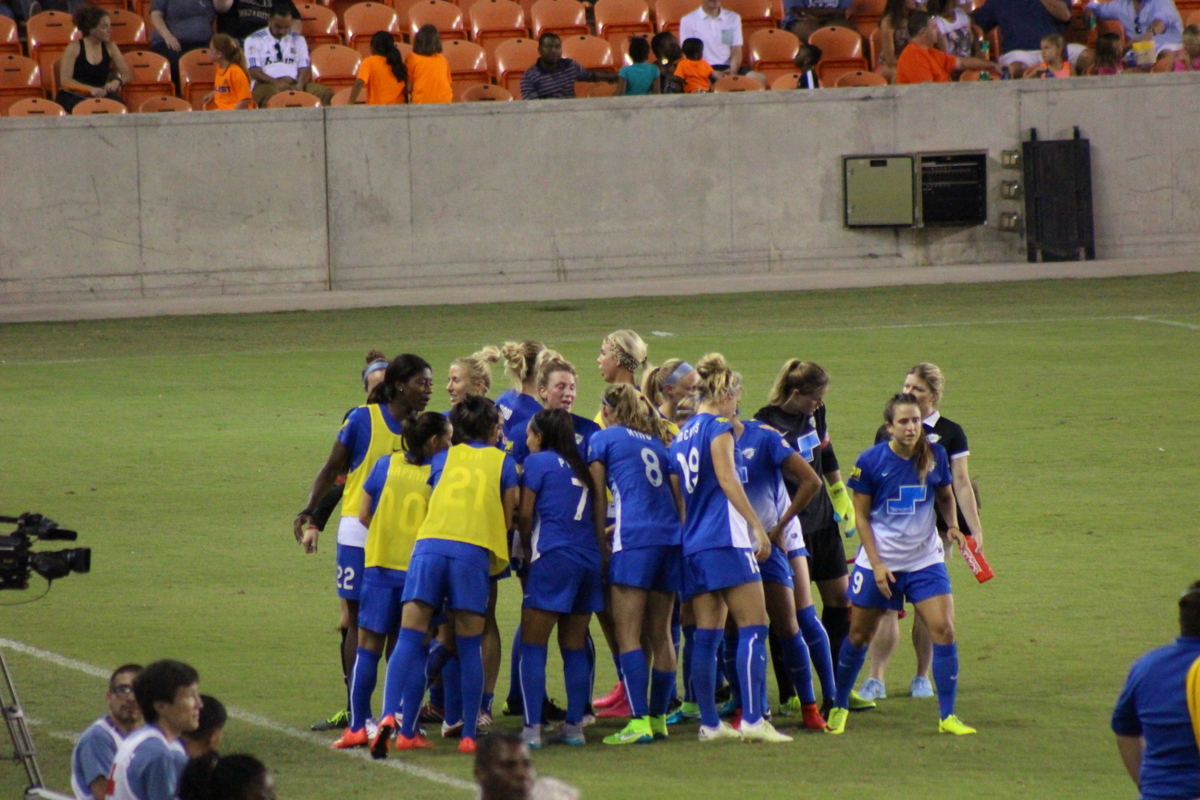The handling of the Boston Breakers’ demise serves as another reminder that club owners and fans often have opposing interests

There’s an ongoing debate in soccer, at all levels and on both sides of the ocean, and it’s so fundamental that it’s sometimes hard to express in words: who does a club belong to?
This is, it must be said, not the same thing as asking who owns a club. That’s easy enough to suss out. The question of belonging transcends money and legal papers. It rests in the stands, in the dressing room, in the employee break rooms, in the pub down the road, and in our living rooms. It’s not something you can quantitatively prove, and it’s usually not something you can demonstrate in a court of law. But it’s there, and the only way you can ignore it is if you have a vested interest in pretending the money and the legal papers are the only things that really matter.
This question underpins many of the sport’s most contentious debates. From the fan ownership movement in England’s lower leagues, to corporate exemptions to the Bundesliga’s 50%+1 rule, to the Twenty’s Plenty campaign among Premier League fans, to the furor over Leeds United’s redesigned club crest, to the #SaveTheCrew campaign, to the arguments over promotion and relegation in the United States, all essentially boil down to where real power and stakeholding lies in soccer.
This past weekend, the NWSL officially announced that the Boston Breakers, one of the most storied clubs in women’s soccer in the US, was shutting down effective immediately. The announcement came following weeks of speculation and days after the decision had been leaked to the media. There was no real opportunity offered to try and resolve the crisis; there were talks between the club’s ownership and interested buyers, the talks fell apart, and that was that. Any and all attempts to get any real answers beyond the basic facts of the matter have mostly run into a thick fog.
You may have heard that US Soccer owns and operates the NWSL. You may have also heard that US Soccer has a budget surplus somewhere in the neighborhood of $150 million. You may have also heard that it would’ve only cost about $3 million to $5 million for the league to float the team until another investment group could be found. When it became clear that the NWSL—which is to say, US Soccer—had no interest in paying to keep the team going for a season, fans and reporters and observers struggled to discern a reason why. Especially given all the money poured into MLS and various individual franchises to cover losses until financial stability could be achieved.
For want of a detailed and credible explanation, the conclusion fans reached was painful and, perhaps, not entirely surprising. The people who had the money and the power to save the Boston Breakers didn’t care enough about the team to want to save it. So they didn’t. And that was that.
That is one of the central principles driving the debates over who soccer really belongs to. The people who care the most about a thing never get to sit in on the meetings that decide what to do with it. The people who have money, who have power, who are placed in positions to make crucial decisions and trusted with stewardship over assets that are otherwise seen as public goods, simply have different priorities than the people who are emotionally invested in the thing that the former set legally and financially control. Preserving a club with history, making fans proud, giving families a touchstone around which they can organize their lives and build memories and personal histories, knitting into the social fabric of a city or region; for the people with money and power, these are, at best, second-order concerns.
This is why the question of ownership versus belonging is not simply an emotional or abstract one. The people in suits, those who sign the checks and give the press conferences and sit in those important meetings, have demonstrated time and again that their roles as stewards of such community assets takes a backseat to their roles as business executives. And when clubs are run exclusively as businesses, shutting down isn’t a particularly devastating result. The people who care most about their soccer teams, the ones who want them to survive at nearly any cost, are stuck in a position where they have to fight to keep them. That fight is legal, it is financial, and it is, increasingly, ideological. Winning that fight, and preserving the things they love for the generations that will come after them, will mean wresting some of the power currently held by the people with money and nice suits.
It’s hard to say whether soccer fans—even just women’s soccer fans—would’ve stood in solidarity with Breakers supporters if they had an opportunity try and fight for their club, like Columbus Crew fans are doing now. While the #SaveTheCrew campaign had a strong wind in their sails when it started last fall, it’s unclear whether fans of other MLS teams will keep the faith with their Columbus compatriots, or if Crew fans will be largely on their own this year. English football fans were outraged when the FA made the decision to move Wimbledon FC to Milton Keynes, but they eventually moved on with their lives. And maybe that’s to be expected; the urge to shrug and say “not my problem,” in soccer and in most other things, is very strong. But fans of teams, and fans of the sport, will need to find ways to come together when things like this happen.
Because there will be more tragedies like what happened in Boston this week. Today it’s the Breakers. Tomorrow it might be your team. At some point you are going to have to say enough. Where exactly is your breaking point?
Follow James on Twitter @thaumatropia.
